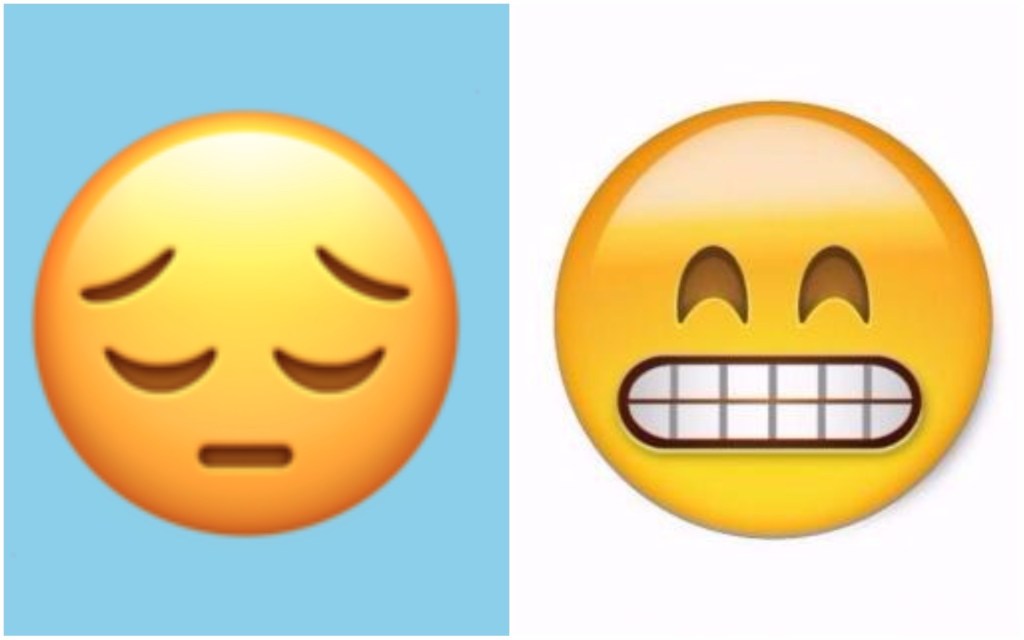Writing in a 1977 clinical handbook on depression, the Harvard psychiatrist Gerald Klerman said the relationship between anxiety and depression has “long been the subject of controversy among clinicians.” He pointed out that the terms anxiety and depression have multiple definitions, and their overlapping symptoms and treatment protocols often lead to confusion.
Forty years have passed since then. But when you speak with mental health researchers today, you still hear a lot of the same talk: “When it comes to anxiety and depression, you see a lot of related or overlapping symptoms, and as a result, the diagnoses the same patient receives across a number of providers can be inconsistent,” says Christina Chick, a postdoctoral research fellow at Stanford University.
Videos by VICE
But while someone with depression and someone with anxiety may have corresponding symptoms, Chick says it’s also possible that two people diagnosed with anxiety won’t have overlapping symptoms.
Confused yet? Hashing out some definitions of these two conditions might help—although nailing those down is also tricky. “Are we talking about the mood states, or the disorders?” asks Michelle Newman, director of Penn State University’s Laboratory for Anxiety and Mood Pathology.
Newman explains that a “mood state” could be run-of-the-mill anxiety or depression—the worrying or sadness we all feel from time to time—while disorders are persistent conditions that include clusters of symptoms and potential comorbidities. Making matters even more complicated: Both anxiety and depression can be broken down into subcategories—each with its own set of symptoms and diagnostic criteria.
But in broad terms, anxiety is worry or nervousness or a feeling of unease—usually about some future threat or event—that makes you feel “keyed up or on edge,” Newman says. This physical component is a big part of it, she adds. Anxiety could manifest as a racing heart or muscle tension—some sign that the agitation you’re experiencing is escaping the boundaries of your brain and affecting your body.
Chick adds to that definition. “It’s a hypervigilance about things that could go wrong, to the point that you have difficulty applying your cognitive facilities to other pursuits,” she says.
Depression, meanwhile, is more about mood. “It’s the persistent presence of sadness or melancholy,” Chick explains. “Or it could also be an absence of feeling, or the loss of pleasure or interest in activities a person has typically found engaging or rewarding.” Or all of these things.
More From Tonic:
“If you’re sitting with someone who has depressed mood, it feels very different than sitting with someone with anxiety,” Newman says. “Depression looks and feels like hopelessness—like the person knows for sure the worst is going to happen, so they might as well not try—while anxiety feels like the person is holding out hope even though they fear the worst.”
An anxious persons also tends to seem agitated, she says, while someone who’s depressed is more likely to be listless. As far as their symptoms go, “picture a Venn diagram,” Chick says. “Each disorder has some distinct symptoms and some overlap.” Insomnia, problems focusing or concentrating, and feeling edgy or restless are among the diagnostic criteria for both generalized anxiety disorder and clinical depression, according to the latest edition of the Diagnostic and Statistical Manual of Mental Disorders.
To be diagnosed with major depression, your qualifying symptoms need to stick around for at least two weeks, per the DSM. For a diagnosis of an anxiety disorder, six months is the diagnostic bar you’re hoping not to hurdle. “There’s also a lot of overlap when it comes to treatments,” Chick says. “For example, selective serotonin reuptake inhibitors”—a.k.a., SSRIs—”help increase the bioavailable amount of serotonin circulating in body, and that helps you feel calm.” It’s easy to see how an increased feeling of calm might help alleviate symptoms of both anxiety and depression, she adds.
Symptoms and treatments aside, the fact that many people experience both of these disorders—often back to back—is one of the big reasons they tend to be grouped together. Studies vary, but most find 40 to 50 percent of people who experience one experience the other, Newman says. For a long time, it was thought that feelings of anxiety might grease the slide into depression. Newman’s own research has shown that, in many cases, this is true. But she says her team’s work has also “sort of busted that myth.”
“If you look at both [disorders] across time, they equally predict one another,” she says. “Anxiety is not more likely to precede depression [than vice versa].” What really binds them together, Newman says, is that these are both disorders of “negative affect,” or negative emotions and outlook. “That makes them unique from other mental health problems, and that’s why they’re often lumped together,” she says.
Examined this way, it’s easier to see why anxiety and depression go hand in hand, and treatment options—form drugs to cognitive behavioral therapy—are often similar, if not the same. Chick puts a finer point on things. “These are mood disorders we all experience to some degree,” she says, “and I think there are ways in which a person experiences the world that might contribute to a risk for both.”
Read This Next: Stop Confusing Your Nerves With Having Anxiety
More
From VICE
-

Photo: Whiteland Police Department -

Photo Credit: Infamous PR -

Screenshot: Larian Studios, Reddit -

Screenshot: Sony
